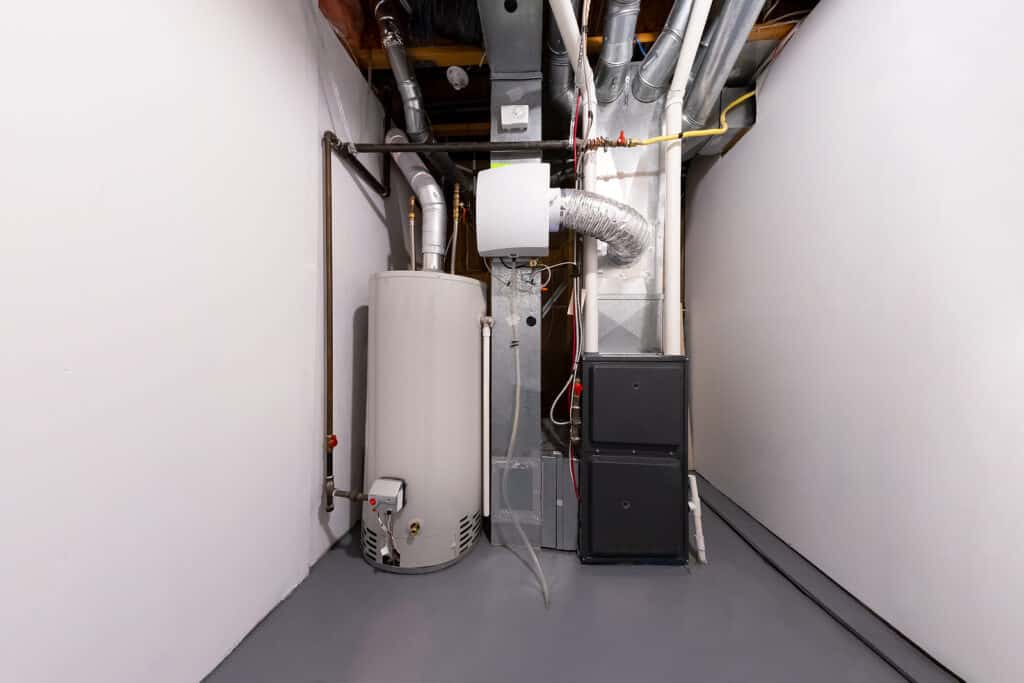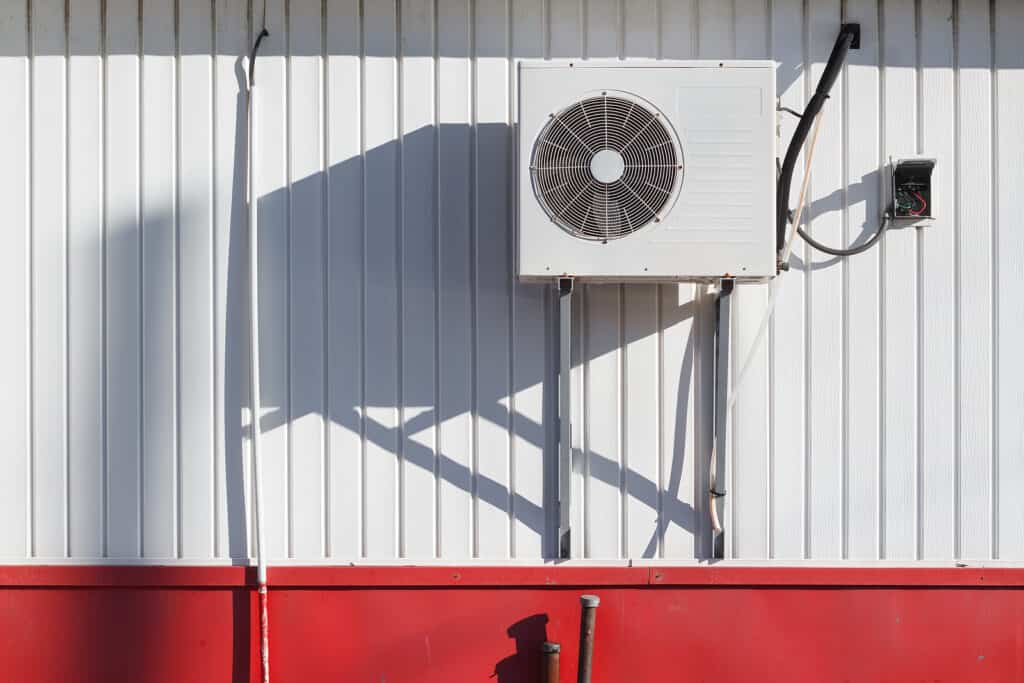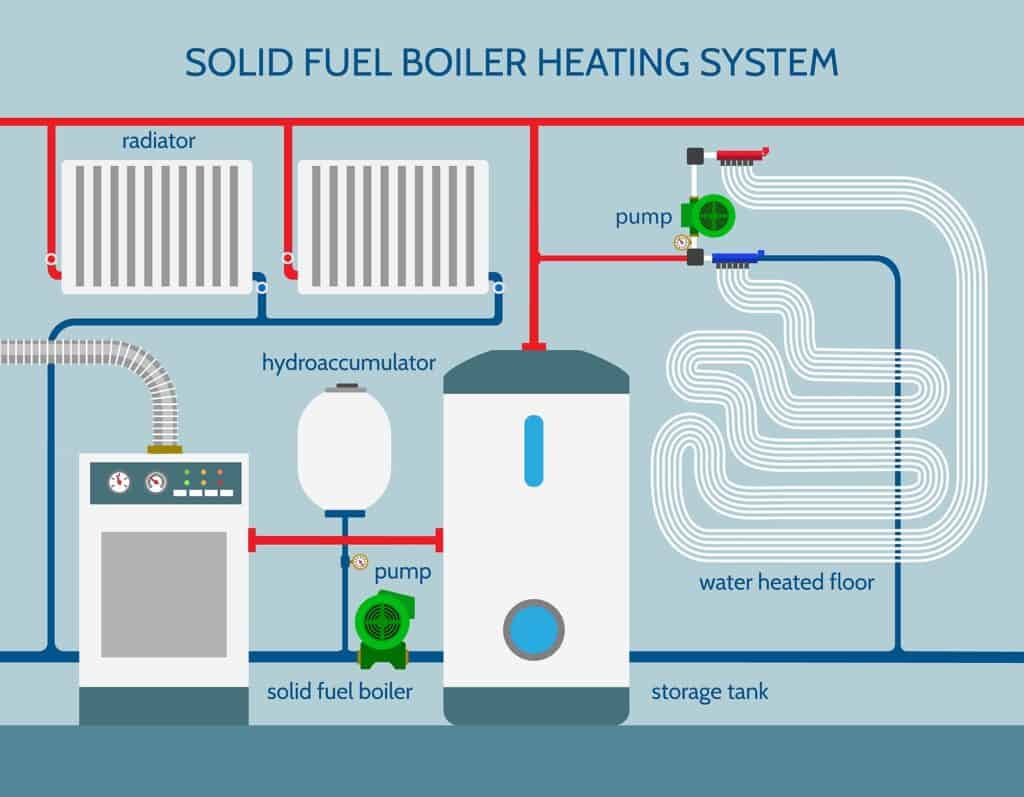Energy Efficient Heat Pumps
With the global spotlight on the environmental consequences of energy consumption, the quest for efficient home heating solutions has risen to the forefront of priorities. Within this landscape, the emergence of energy-efficient heat pumps stands as a revolutionary technology.
This innovation not only promises financial relief by curbing heating expenses but also makes substantial strides in reducing one's carbon footprint. In this comprehensive manual, we embark on an exploration into the realm of energy-efficient heat pumps, unraveling their essence, functionality, and accessibility. As we journey through these insights, a crystal-clear comprehension of the potential of these systems to revolutionize a home's heating efficiency will be at your fingertips.
What are Heat Pumps?
Imagine a system that captures warmth from the air, ground, or water and uses it to keep your home cozy during winter and refreshingly cool in the summer – that's the magic of heat pumps. Unlike traditional heating systems, which burn fuel to create heat, heat pumps are like nature's heat couriers, transferring warmth from where it's abundant to where you need it most. They harness the power of special fluids to work their wonders: absorbing heat from the outdoors, ramping up its temperature, and delivering it indoors, making your space comfortably toasty.
But the cool part is they can also do the opposite, whisking away indoor heat when it's hot outside, providing a comfortable breeze when summer hits. This incredible flexibility ensures that no matter the season, your home remains a sanctuary of comfort, all while being energy-efficient and planet-friendly. So, whether it's embracing the chill of winter or basking in the summer sun, heat pumps offer a year-round solution that aligns with both your comfort and your commitment to sustainability.

How Do Heat Pumps Differ from Traditional Heating Systems?
Heat pumps and traditional heating systems are both designed to provide warmth to indoor spaces, but they operate using different principles and technologies. Here's how heat pumps differ from traditional heating systems:
Operating Principle
- Heat Pumps: Heat pumps operate by transferring heat from one location to another. They extract heat from the surrounding environment (air, water, or ground) and then amplify and transfer it into the indoor space. Even in colder temperatures, heat pumps can extract heat from the outdoor air or ground and provide it indoors. This process is based on the principle of moving heat from areas of lower temperature to areas of higher temperature using refrigerants.
- Traditional Heating Systems: Traditional heating systems, such as furnaces and boilers, generate heat by burning fuel (like natural gas, oil, or propane) or through electric resistance heating. They create heat directly and then distribute it through the building's ventilation system or radiators.
Energy Efficiency
- Heat Pumps: Heat pumps are known for their energy efficiency, as they move heat rather than generate it. They can provide several units of heat for every unit of electricity they consume, making them a cost-effective option for both heating and cooling.
- Traditional Heating Systems: Traditional heating systems, especially those using combustion, tend to be less efficient since they produce heat by burning fuel. Some older models may have lower efficiency ratings, leading to higher energy bills.
Versatility
- Heat Pumps: Heat pumps are versatile and can provide both heating and cooling in a single unit. They can reverse their operation to cool indoor spaces during hot weather, making them a year-round HVAC solution.
- Traditional Heating Systems: Traditional heating systems are designed solely for heating purposes. If cooling is needed, a separate air conditioning system is required.
Environmental Impact
- Heat Pumps: Heat pumps are more environmentally friendly compared to traditional heating systems that rely on burning fossil fuels. Since heat pumps use electricity to transfer heat, their environmental impact depends on the source of that electricity. If the electricity comes from renewable sources, the heat pump's carbon footprint can be significantly lower.
- Traditional Heating Systems: Traditional heating systems that burn fossil fuels contribute to greenhouse gas emissions and air pollution, which can have negative environmental effects.
Initial Cost
- Heat Pumps: Heat pumps typically have a higher upfront cost compared to some traditional heating systems. However, this initial investment can be offset by lower operating costs over the system's lifespan.
- Traditional Heating Systems: Some traditional heating systems have lower upfront costs, but their ongoing fuel and maintenance expenses can be higher in the long run.

The Role of Energy Efficiency
The role of energy efficiency in the context of heat pumps is of paramount importance due to its profound impact on both performance and sustainability. Heat pumps, built upon the foundational principles of heat transfer, harness the potential of advanced technologies to magnify their operational effectiveness.
At the core of their design, energy efficient heat pumps excel in their ability to facilitate superior heating and cooling outcomes, all the while operating on a remarkably reduced consumption of electricity. This dual advantage not only translates into tangible financial savings for users through lowered energy bills but also holds the potential to revolutionize our ecological footprint by significantly curbing overall energy consumption and subsequent environmental repercussions.
By ingeniously incorporating intricate mechanisms that optimize heat exchange processes, energy efficient heat pumps exemplify a synergy of innovation and environmental responsibility. These systems stand as exemplars of technological progress working harmoniously with ecological mindfulness, showcasing a path towards a more sustainable and energy-conscious future.
How Energy Efficient Heat Pumps Work
Delving into the intricate workings of energy efficient heat pumps unveils a complex yet fascinating interplay of principles and components that drive their exceptional performance.
Foundations in Heat Transfer
At the heart of energy efficient heat pumps lies the foundational principle of heat transfer. These systems capitalize on the thermodynamic properties of a refrigerant to enable the seamless absorption of heat from a low-temperature source, often the ambient outdoor air. The absorbed heat is then ingeniously elevated in temperature and released within the confines of the home. This remarkable feat is orchestrated through a meticulously orchestrated sequence of phases: compression, condensation, expansion, and evaporation.
Essential Components
A comprehensive comprehension of a heat pump system necessitates an exploration of its key components. This ensemble of parts is composed of four main elements – the evaporator, compressor, condenser, and expansion valve. Collaboratively, these components choreograph a symphony of fluid dynamics, wherein the refrigerant cycles through stages that channel its latent heat-absorbing and releasing properties.
Dynamic Modes of Operation
The versatility of heat pumps manifests most vividly in their dynamic ability to seamlessly alternate between heating and cooling modes. By orchestrating a reversal in the trajectory of the refrigerant flow, a heat pump seamlessly transforms its role from a heat generator during colder seasons to a cooling agent when the mercury rises. This chameleon-like adaptability offers users year-round comfort and control.
Diverse Array of Heat Pump Types
The realm of heat pumps encompasses a diverse spectrum of configurations, each tailored to specific scenarios and environmental contexts. The array includes air source heat pumps (ASHPs) that harness the thermal energy latent in the surrounding air, ground source heat pumps (GSHPs) which tap into the relatively stable temperatures of the earth, and water source heat pumps (WSHPs) that leverage the consistent temperatures of water bodies. The selection of the optimal type hinges on multifaceted factors including geographical location, available space, and financial considerations.
Benefits of Energy Efficient Heat Pumps
Significant Energy Savings Energy efficient heat pumps are designed to consume less energy while delivering the same level of heating or cooling compared to traditional systems. This results in substantial reductions in energy bills over time.
Reduced Environmental Impact Since heat pumps rely on existing heat sources rather than burning fossil fuels, they produce fewer greenhouse gas emissions. This makes them a greener option for environmentally conscious homeowners.
Enhanced Home Comfort Energy efficient heat pumps provide consistent heating and cooling, eliminating the temperature fluctuations commonly associated with traditional systems. They also dehumidify the air, leading to improved indoor air quality and overall comfort.
Long-Term Cost Savings While the initial investment in a heat pump system may be higher, the long-term cost savings on energy bills often offset this. Many regions also offer incentives, tax credits, and rebates to encourage the adoption of energy efficient technologies.
Factors to Consider Before Installing a Heat Pump
Thoroughly assessing the multifaceted landscape surrounding heat pump installation entails a comprehensive examination of a range of critical considerations. These facets intricately intertwine to shape the efficacy, functionality, and financial viability of the endeavor.
Climate Compatibility
A fundamental cornerstone in the pre-installation deliberation process hinges on the inherent climate suitability. The efficacy of a heat pump is profoundly influenced by the climatic conditions that prevail in the region. In regions characterized by moderate climates, the prowess of air source heat pumps manifests optimally. Conversely, areas graced with extreme temperature fluctuations find ground source heat pumps to be the more adept solution, harnessing the consistent thermal properties of the earth for enhanced performance.
Precise Sizing and Optimal Capacity
Meticulously discerning the appropriate size and capacity of the prospective heat pump emerges as a pivotal aspect. This determination stands as a lynchpin for ensuring not only the seamless fulfillment of heating demands but also the judicious allocation of energy resources. A heat pump undersized for the intended application may labor to adequately meet the heating requisites, potentially leading to compromised performance. Conversely, an oversized counterpart risks excessive energy consumption, veering into wasteful territory.
Nuanced Installation Contemplations
The installation phase of a heat pump is a multifaceted endeavor that demands meticulous attention. A comprehensive understanding of both indoor and outdoor components is requisite, and the orchestration of their positioning plays a paramount role. Ensuring strategic placement, effective insulation, and well-designed ductwork is of utmost importance. These intricate nuances collectively foster a milieu conducive to efficient operation while mitigating the specter of heat loss.
Holistic Cost Evaluation
The panorama of cost analysis extends far beyond surface considerations, delving into a realm where long-term savings interlace with immediate financial implications. While energy efficiency promises enduring fiscal benefits, an informed understanding of upfront costs, installation outlays, and the prospective return on investment is integral. This holistic contemplation necessitates the incorporation of variables such as prevalent energy prices, potential incentives, and projected long-term savings. This comprehensive financial assessment underscores the pragmatic underpinning of the decision-making process.
Where to Get Energy Efficient Heat Pumps
Navigating the realm of energy-efficient heat pump acquisition delves into a landscape rich with options and considerations, each bearing significance in ensuring optimal performance and satisfaction.
Localized Expertise: Local HVAC Dealers
Embarking on the journey to secure an energy efficient heat pump often finds fruition in the realm of local heating, ventilation, and air conditioning (HVAC) dealers. These establishments serve as treasure troves of knowledge and products, housing a diverse range of energy efficient heat pump options. Beyond the mere provision of products, these experts act as veritable guides, furnishing invaluable insights into system selection, meticulous sizing, and the nuances of installation, an aspect pivotal for realizing peak performance.
Quality Assurance via Certified Manufacturers
The sphere of reputable manufacturers that specialize in heat pump technology unfurls an expanse of possibilities. Opting for a certified manufacturer entails a deliberate choice for quality assurance and efficiency. These manufacturers, steeped in expertise, curate an array of models adorned with a multitude of features tailored to varying needs. The seal of certification guarantees not just the technological finesse of the product, but also a steadfast commitment to energy efficiency, ushering a realm of choices aligned with long-term sustainability.
The Online Bazaar: Virtual Marketplaces
Venturing into the digital realm introduces the prospect of browsing an extensive collection of energy efficient heat pumps through online marketplaces. The virtual expanse extends the convenience of comparing features, prices, and customer reviews, all from the comfort of one's abode. This dynamic platform offers the luxury of meticulous evaluation, enabling a discerning selection process driven by an amalgamation of knowledge and convenience.
Professional Craftsmanship: HVAC Installation Services
The culmination of the acquisition endeavor extends beyond the point of purchase, encapsulating the installation process. Collaborating with professional HVAC installation services establishes a pivotal juncture for ensuring the efficacy of the heat pump system. Their deft expertise translates into a seamless installation, optimally harnessing the potential of the technology. Furthermore, these professionals offer the boon of subsequent maintenance services, diligently safeguarding the longevity and continuous performance of the system.
Conclusion
As we conclude our journey through the realm of energy-efficient heat pumps, I find myself inspired by the fusion of technology and eco-consciousness. The notion of harnessing natural warmth to envelop our living spaces with comfort resonates deeply. These heat pumps are not just mechanisms; they're expressions of our commitment to a greener future.
With every facet we've explored, from the intricate mechanics to the holistic considerations, a realization dawns: our choices matter. They matter for our budgets, for our comfort, and for the world we inhabit. This exploration has kindled a personal drive within me to tread thoughtfully, to opt for solutions that echo both innovation and environmental responsibility. In this juncture of progress and possibility, I envision not just efficient heating and cooling, but a journey towards a more sustainable and mindful way of life.

